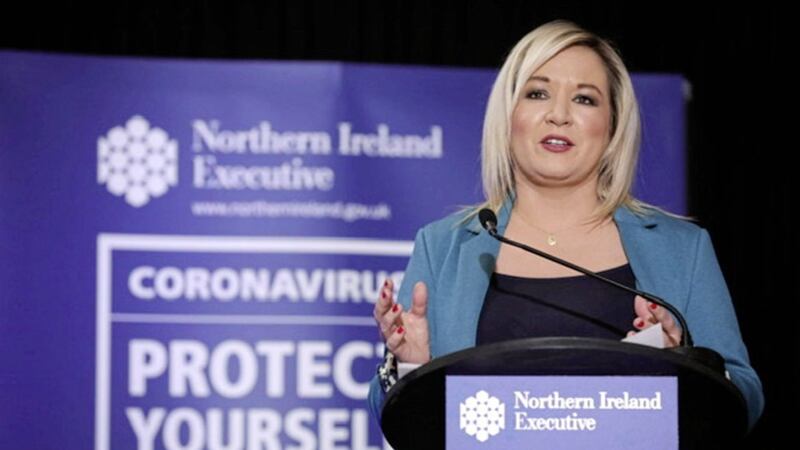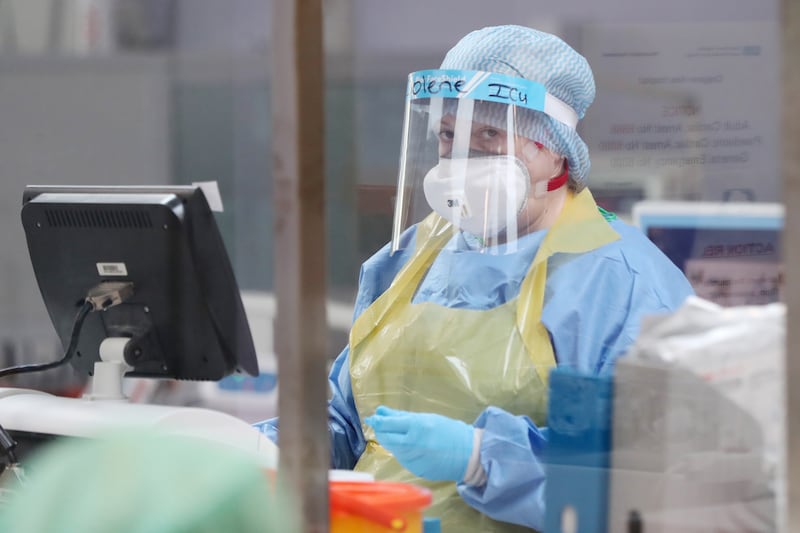Northern Ireland is to make the first move towards step one of the roadmap to recovery from the coronavirus lockdown.
Speaking at the Executive briefing, First Minister Arlene Foster said Northern Ireland's infection rate (R rate) had dropped to below 0.7, meaning "very tentative first steps toward recovery" could now be made.
Deputy First Minister Michelle O'Neill said implementing parts of the recovery plan was not a decision that had been taken lightly.
However, step one will not be implimented in full on Monday, instead garden centres and recycling centres will reopen as part of the first measures to ease lockdown.
Having been contacted by the relative of a terminally ill woman who wanted to marry, the executive also said a "humane" decision had been taken to allow those with life limiting illnesses to have marriage ceremonies.
The executive stressed that not all aspects of the first step of its recovery plan will take affect at once, but that they would make further announcements at the start of next week.
"It is important that everyone understands that the process of relaxing restrictions will be incremental and there won't be a dramatic shift in relation to the lifting of restrictions," said Mrs Foster.
Northern Ireland's lockdown exit plan sets out a five-step process, but does not assign projected dates for any of the stages.
Ms O'Neill said the executive would "move towards step one" of the exit plan on Monday when further relaxations would be announced describing Thursday's announcement as "baby steps".
The ministers also committed to publish their decision-making matrix each day going forward, to give the public sight of what factors were influencing moves around restrictions.
"We must remember that the regulations are in place to save lives and the executive does not take decisions on whether to maintain or indeed to relax the restrictions lightly," said Ms O'Neill.
"Every decision is carefully judged based on an evaluation of risks and potential benefits. Our ability to recover from coronavirus will be a partnership and the partnership effort involves every single member of society.
"And, as our partners in that recovery plan, it is right that we're open and honest with the public about how we make our assessments and how we arrive at those most important decisions on your behalf".
Both leaders said they agreed with Older Person's Commissioner Eddie Lynch that "universal testing" should be carried out in care homes in order to protect vulnerable residents.
Current Department of Health policy requires testing only in homes where Covid has either been detected or suspected.
It comes as five more people died from coronavirus, bringing the total number of deaths in the North to 454.
Another 38 people have been diagnosed with the virus and 19 people remain in ICU across Northern Ireland.
First Minister Arlene Foster revealed Northern Ireland's infection rate (R rate) had dropped to below 0.7. The R rate is the number of people an infected person passes the disease to.
There were ten more deaths recorded in the South bringing the total number of people who have lost their lives to 1,497.
There were also 159 new positive tests in the Republic.
In Scotland there were 34 more deaths recorded and a further 188 people tested positive with the virus.
So far there have been 2007 deaths in Scotland with 71 patients with confirmed or suspected Covid-19 currently in ICU.
In Wales there were ten further deaths, 1164 people have now lost their lives so far from the virus.
The largest loss of life remains in England, as a further 355 people died from coronavirus bringing the total number of deaths to 30,028.
An additional 1189 people have also tested positive for the virus.








